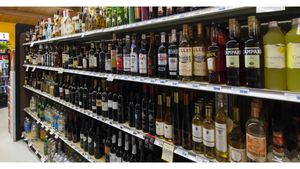SHOPRITE'S MONTANARO HONORED FOR THE KOSHER EXPERIENCE
FREEHOLD, N.J. -- Twenty-five years ago, it was a kosher experiment -- a booth of staple items like matzoh and noodles placed at the front of a Foodarama ShopRite store in Lakewood, N.J.Today, it's The Kosher Experience, a well-respected, oft-copied program that demonstrates the ability of food retailers to connect with their customers on an intimate level where trust is the guiding principle.Carl
June 6, 2005
Robert Vosburgh
FREEHOLD, N.J. -- Twenty-five years ago, it was a kosher experiment -- a booth of staple items like matzoh and noodles placed at the front of a Foodarama ShopRite store in Lakewood, N.J.
Today, it's The Kosher Experience, a well-respected, oft-copied program that demonstrates the ability of food retailers to connect with their customers on an intimate level where trust is the guiding principle.
Carl Montanaro has been present for the whole story, and as Foodarama's senior vice president, sales and marketing, has helped take The Kosher Experience from a holiday-focused merchandising platform to an umbrella store-within-a-store format offering all categories of goods from around the world.
"Instead of being a dietary, religious need, kosher has become a cultural want," Montanaro said on the eve of being honored by Chabad House, an international organization devoted to the Jewish faith and its kosher traditions. "It's a world food organization now. Basically, what kosher is, is an international aisle with foods from around the world, including the United States."
Rabbi Yosef Carlebach, executive director of Chabad House at Rutgers University, New Brunswick, N.J., recalled the start of the kosher sets in Foodarama stores. It was 1979 when the young rabbi encountered then-president Joe Saker
"I said, 'Mr. Saker, your job is to sell kosher food. My job is to teach people about it. We can work something out.' From this meeting was born The Kosher Week, where we took all the kosher products at that time in the store, put [them] in a booth and had our volunteers show the people going by that kosher food was available."
Carlebach, who helped organize the gala dinner feting Montanaro and ShopRite, recalled that there was little variety then, and the limited variety barely filled the booth-like display set up by store associates.
"We would have to take every kind of noodle to make this booth look full. There weren't that many products," he said.
Nevertheless, the week-long promotion increased sales of those basic kosher items by 20%, Carlebach remembers. The sales bump was enough for the retailer to begin regular promotions of kosher foods. At first, they were built around Jewish holidays. Today, sales are consistent year-round as kosher consumption has spread beyond the confines of religion to embrace a more wholesome, traditional way of eating that attracts non-Jews, as well.
"Things haven't just changed in the New York area. They've changed in, say, Vermont. You can get a fresh, kosher chicken today in Vermont, and you're not going to pay a tremendously high premium for it, either," Carlebach said. "That's remarkable."
The Kosher Experience has evolved into a complete store-within-a-store concept that occupies one whole grocery aisle -- including dairy and frozens -- and some perimeter space in nine of Foodarama's 26 stores.
"The original setup was whatever was not carried in the supermarket went into the Kosher Experience," Montanaro said, noting the fresh foods, in particular, are Glatt [strictly] kosher.
"We use a lot of vendors -- a lot out of Brooklyn, N.Y., where it's very heavily dominated," he said. "When we started down here, what we were trying to create was a mini Brooklyn. I used to check the ads out of there and try to match up the prices."
The Kosher Experience is actually partially integrated with the rest of the store. In certain cases, products that have moved into the mainstream are often moved over to the retailer's warehouse and distributed to all stores. Certain private-label categories also have kosher representation. Within KEx, however, consumers will find trained staffers, under the guidance of a mashgiach -- particularly in the fresh seafood, meat and deli/prepared meals departments.
"We hire our own people; all of them are [Orthodox Union-] approved. We have various kosher symbols we pay to be in the stores with," Montanaro said. "Believe me, we've had calls come in where we've had to answer questions on why we do what we do. Because of the employee base we put out there, the trust level is very high."
Montanaro, who has been with Foodarama for 43 years, has seen sales and interest grow in other ethnic food categories -- including African, Caribbean and Indian. Kosher alternatives are available in nearly every one.
"I enjoy this because it's more of a cultural thing that takes me around the world, and after all the years I've put into this business, it's given me something more to learn and teach and get into."
About the Author
You May Also Like




